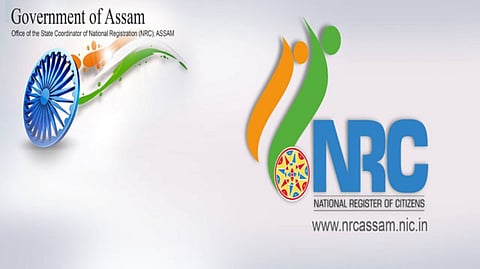
- Home
- Live Blog
- Breaking News
- Top Headlines
- Cities
- NE News
- Sentinel Media
- Sports
- Education
- Jobs

STAFF REPORTER
GUWAHATI: A conglomerate of eight indigenous literary organizations — The Indigenous Tribal Sahitya Sabha, Assam (ITSSA) — has demanded modification of the term ‘Assamese people’ in Clause-VI of the Assam Accord by the terms ‘Indigenous Tribal People of Assam’ and ‘Indigenous Assamese People of Assam’. It has further stated “Constitutional safeguards should be given to the indigenous tribal people and indigenous Assamese people based on the NRC (National Citizens Register) 1951. Those acquired Indian Citizenship between 1951 and March 25, 1971, should not any way be provided with any kind of Constitutional safeguard under Clause-6 of the Assam Accord, 1985.”
A delegation of the organization led by ITSSA president Gubindo Taid on Wednesday submitted a memorandum containing these and several other demands to Biplob Kumar Sarma, Chairman of the High-Level Committee on Clause-6 of Assam Accord. On the same day, the organization also submitted a memorandum to State NRC Coordinator Prateek Hajela demanding inclusion in the National Register of Citizens (NRC) of those indigenous tribal people and indigenous Assamese people who have been excluded from the final NRC.
Among other demands are introduction of a four-language education policy by the Government of India in Assam in place of the existing three-language education policy in the State. This step would help in preservation and development of the tribal languages in Assam, it stated. The ITSSA also called for introduction of the Mising, Tiwa, Rabha, Deori, and Karbi languages as mediums of instruction at the Elementary level as per the guidelines of the Draft National Education Policy (NEP), 2019. The organization further demanded that the Bodo and Garo languages be upgraded as mediums of instruction up to Class-XII from the existing Class-X and Class-VIII respectively up to the Secondary level of Education. It also called for introduction of Dimasa as a language subject up to Class-XII.
The organization demanded that encroachers be evicted from all ‘Tribal Belts and Blocks’, land rights to indigenous tribal people be protected by giving them settlement and ‘Periodic Patta’, and also that the report of Harishankar Brahma Committee be made public by Government notification.
The autonomous councils of the Misings, Rabhas, Tiwas, Sonowals, and the Deoris be granted Constitutional status by including them in the Sixth Schedule of the Constitution of India, they demanded.
The organization also demanded that the reservation provisions for the existing Scheduled Tribes (Plains) and Scheduled Tribes (Hills) be kept intact and the existing quota of 10% and 5% should be enhanced to 15% for ST (P) and 10% for ST (H) respectively as the ST population has increased to 12.5% as per the Census of India, 2011. It also demanded that reservation of seats for public representatives of the indigenous tribals in Parliament, State Assembly, and local bodies within the area of the Sixth Schedule Autonomous Councils and other Non-Sixth Scheduled Autonomous Councils.
The apex tribal literary organization of the State — ITSSA — includes the Tiwa Sahitya Sabha, Dimasa Sahitya Sabha, Karbi Lammet Amei, Mising Sahitya Sabha, Deori Sahitya Sabha, Rabha Sahitya Sabha, Garo Sahitya Sabha, and the Bodo Sahitya Sabha.
Also Watch: NF Railway Mazdoor Union Protest in Guwahati